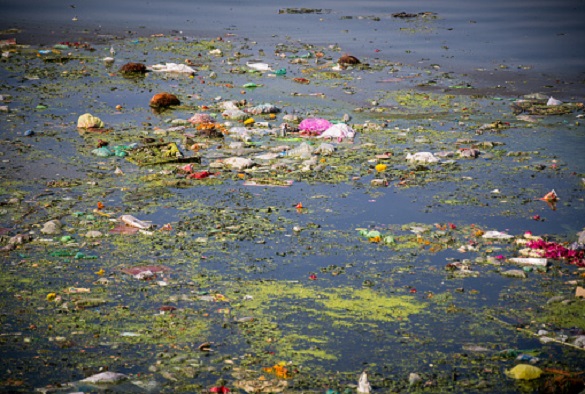
Climate pollution with plastic bottles in the river
The University of Liverpool’s Institute for Risk and Uncertainty is hosting a three-day symposium which will consider how to remove plastics from the oceans and investigate the potential trade-offs between collecting plastics and its effect on ocean surface organisms.
Members of the public are invited to join the first day of the symposium which will bring together experts from marine biology, oceanography and environmental groups to discuss the complex issue of how to address the issue of plastics in the ocean.
Speakers at the public event include marine biologist, Rebecca Helm from the University of North Carolina, who will deliver the keynote speech, and Lonneke Holierhoek from The Ocean Cleanup.
Researchers and students are invited to attend the two day academic symposium which will focus on factors that need to be taken into account when developing a model to assess the impact of removing plastics on a variety of species. It will also include “hackathon” style workshops, where attendees will develop and test models to solve ocean plastics clean up scenarios.
Scott Ferson, Director of the Institute of Risk and Uncertainty said: This event brings together researchers from different disciplines and organisations to consider the complex issue of cleaning up plastics from the oceans. Whilst plastic in the ocean causes pollution its removal also presents risk and environmental issues. The aim of the academic workshops is to use a quantitative approach to answer the question of how the benefits of plastic removal compares to the potential risks to ocean organisms.”
The Ocean Clean-up Symposium takes place from 17 to 19 December 2019 in the Muspratt Lecture Theatre in the Chadwick Building (use the south entrance) at the Unviersity of Liverpool. Refreshments will be available.
To register to attend or to find out more please click here.
The University’s Institute of Risk and Uncertainty brings together expertise across many disciplines including engineering, physical and life sciences, management, and social sciences. Its research focuses on developing methods and tools for the coherent quantification and management of risks and uncertainties that arise in complex environments and natural and constructed systems. To find out more please click here.